CHICAGO—August 14, 2024—Each year, the American Ornithological Society (AOS) confers awards on individuals and groups for their ornithological research and notable contributions to the science and practice of ornithology, and for their service to the society. Our 2024 awardees represent outstanding contributions to the scientific study and conservation of birds and to the AOS. The 2024 recipients will accept their awards at the AOS annual meeting (AOS 2024) in Estes Park, Colorado, in October.
“Our award winners this year epitomize the excellence in research, publications, service, and conservation in ornithology towards which we all strive in our profession,” AOS President Colleen Handel says. “These individuals enrich our entire field and elevate us all not only through their tangible contributions but also as models and mentors, having positive impacts that will carry forward long into the future.”
“We are thrilled to celebrate such incredible individuals and members of our community,” AOS Executive Director and CEO Judith Scarl says. “Their work supports ornithological science, conservation, and service—critical elements that advance the understanding and conservation of birds but that also enrich our field for the members of this community. Congratulations to our 2024 awardees and thank you for your tremendous contributions to ornithology.”
Senior Professional Awards
William Brewster Memorial Award
The William Brewster Memorial Award is given each year to the author or coauthors of the most meritorious body of work (book, monograph, or series of related papers) on birds of the Western Hemisphere published during the past ten years. This year, the AOS is announcing two 2024 Brewster Awards: one to Juan Carlos Reboreda and one to Renée Duckworth.
Juan Carlos Reboreda, Ph.D., Emeritus Professor, Facultad de Ciencias Exactas y Naturales, Universidad de Buenos Aires
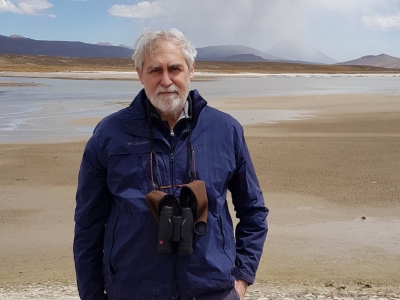
Dr. Juan Carlos Reboreda is an emeritus professor at the University of Buenos Aires and a superior researcher at the National Research Council of Argentina. He studied biology and completed his Ph.D. in biological sciences at the Faculty of Exact and Natural Sciences, University of Buenos Aires. After that, he conducted postdoctoral studies at the Department of Zoology, University of Cambridge, and the Edward Grey Institute of Field Ornithology, Oxford University. During the last 30-plus years his main research interest has been the behavioral ecology and conservation of southern South American birds. He has published more than 150 papers (mainly in ornithological and animal behavior journals) and supervised 20 Ph.D. and 10 M.Sc. students. Reboreda is a Fellow of the International Ornithological Union (2006) and the American Ornithological Society (2011), and received the Alexander F. Skutch Medal from the Association of Field Ornithologists (2018). He has been Associate Editor of The Auk (now Ornithology; 2007–2013), Bird Conservation International (2007–2017), and Emu-Austral Ornithology (2011–2013). He has served as Head of Department (2004–2006), Secretary of Science (2006–2010), Vice-Dean (2010–2014), and Dean (2014–2022) of the Faculty of Exact and Natural Sciences, University of Buenos Aires, and has been President (1994–1996 and 2004–2008) of Aves Argentinas (BirdLife Argentina) and a Council Member of BirdLife International (1999–2004). He is currently serving as Vice-president of the International Ornithologists’ Union (2022–2026).
Renée Duckworth, Ph.D., Professor of Ecology and Evolutionary Biology, University of Arizona, Tucson
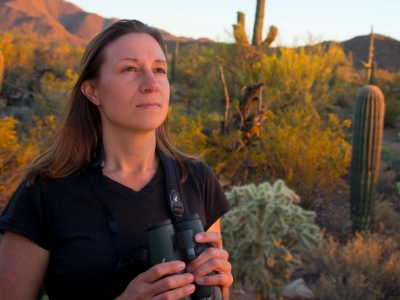
Dr. Renée Duckworth is a professor of ecology and evolutionary biology at the University of Arizona, Tucson. She received her Ph.D. at Duke University followed by two postdoctoral fellowships at University of Edinburgh and Harvard University. Her research focuses on evolution of behavior and understanding how evolutionary changes in behavior influence population dynamics, ultimately shaping macroevolutionary processes. She conducts large-scale field experiments, empirical studies of lifetime fitness, field endocrinology and molecular multi-generational pedigree reconstruction. Her work on long-term population dynamics in bluebirds has shown that phenotype-dependent dispersal influences colonization dynamics and competition between species, ultimately leading to species replacement. Duckworth’s work has been published in Science, Proceedings of the National Academy of Sciences (PNAS), Proceedings of the Royal Society B: Biological Sciences (Proceedings B), American Naturalist, and Evolution. In 2008, she was awarded the Young Investigator’s Award by the American Society of Naturalists and in 2010 she received the Ned K. Johnson Young Investigator Award from the American Ornithologists’ Union (AOU, now AOS), as well as numerous AOS travel grants during her student years. She was a recipient of a National Science Foundation (NSF) CAREER Award to establish the role of maternal effects in cycles of colonization of bluebird species. She was elected as an Elective Member of the AOS in 2012 and an AOS Fellow in 2017, was an associate editor for Condor (now Ornithological Applications) from 2008–2011, served on the Cooper Ornithological Society (now the AOS) Board and AOS Council, and is currently an associate editor of The American Naturalist.
Follow Dr. Duckworth’s research: ORCID-ID
Elliott Coues Award
The Elliott Coues Award recognizes outstanding and innovative contributions to ornithological research with no limitation to geographic area, sub-discipline(s) of ornithology, or the time course over which the work was done. The 2024 Elliott Coues Award is presented to Rebecca Kimball.
Rebecca T. Kimball, Ph.D., Professor, Department of Biology, University of Florida
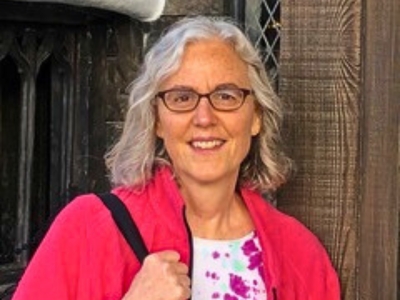
Dr. Rebecca T. Kimball received a Ph.D. from the University of New Mexico, where her dissertation focused on sexual selection in House Sparrows. After completing postdoctoral work at both the University of New Mexico and The Ohio State University, she became a faculty member at the University of Florida in 2001, where she is now a professor in the Department of Biology. She has published more than 100 peer-reviewed papers in the areas of evolutionary biology and behavioral ecology. Within these broad areas, she utilizes modern molecular genomic techniques in combination with other types of data to address questions in phylogenetics, particularly to understand higher level avian relationships; population and conservation genetics; the genetic and physiological mechanisms that underlie evolutionary change in specific traits; the evolution of male secondary sexual traits and display behaviors; and the mating and social systems within and among species. Kimball is a past winner of an AOS-sponsored Student Membership, and was elected as an Elective Member (2010) and then Fellow (2014) of the AOS, has chaired the AOU Student Travel and Presentation Awards Committee, has served as Treasurer of the AOU/AOS, has been a member of numerous AOS committees, and is currently an editor at the journal Ibis.
Follow Dr. Kimball’s research: ORCID-ID
Service Awards
The AOS offers two awards, the Peter R. Stettenheim Service Award and the Marion Jenkinson Service Award, to recognize AOS members who have provided continued, exceptional service to ornithology and to the society. This year, the AOS bestows the Peter R. Stettenheim Service Award to Jennifer Owen, and a posthumous honorary award to Reed Bowman for his long service to the society. Viviana Ruiz-Gutierrez is awarded the Marion Jenkinson Service Award.
Peter R. Stettenheim Service Award
Jen Owen, Ph.D., Associate Professor, Michigan State University
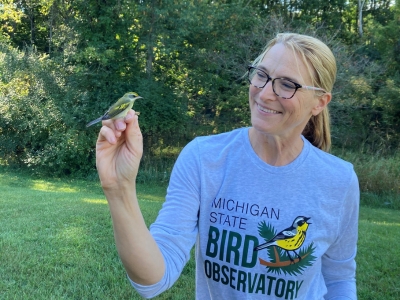
Dr. Jen Owen received her B.S. from University of Montana’s School of Forestry in Wildlife Biology and her Ph.D. from University of Southern Mississippi, under direction of Frank Moore, Ph.D. Currently she is an associate professor and associate chair in the Department of Fisheries and Wildlife at Michigan State University, where she also serves as the director for the Corey Marsh Ecological Research Center and Michigan State Bird Observatory. Owen leads an interdisciplinary research program that addresses issues at the interface of health for wild birds, humans, and the environment. She investigates the role of migrating birds in the spread and maintenance of zoonotic pathogens. Currently, Owen and her students are studying how variation in habitat quality and access to adequate food affects a bird’s ability to maintain health during migration. Owen is a past AOS Student Research Grant winner and was elected an AOS Elective Member in 2008 and then a Fellow in 2014.
Owen has served the AOS, as well as its predecessor societies, the AOU and the COS for more than 20 years. She has been especially active in ensuring that our society meets the needs of its members, particularly those early in their careers. Her earliest involvement in AOU was on the ad hoc Committee on AOU Governance (2003–2004), and as a founding member of the AOU Committee on Student Affairs (2003–2004) when she organized the first-ever Student-Professional Mixer. In 2004, Dr. Owen became a founding member of the Early Professionals Committee, and served as Chair of that committee for five years (2015–2020). She also chaired the ad hoc Committee on AOU Membership (2009–2011), as well as the AOU Membership Taskforce Committee (2016). Owen served as an Elected Council Member for the AOU (2011–2013), and also served on the Board of the COS in 2016 as that society joined the AOU to form AOS. She served as editor for Condor: Ornithological Applications (2013–2014), and as an associate editor for Auk (2010–2013). Following the merger of the AOU and COS to form the AOS, Owen served as the meeting host and primary organizer for the first AOS annual meeting in 2017, held at Michigan State University. She helped the annual meeting model evolve in partnership with a huge array of volunteers, leadership, and AOS staff. She has served on the AOS Investing Trustees Committee (Chair, 2021–present, member 2020–2021), the AOS Finance Committee (2021–present), AOS Audit Committee (2022–present). Most recently Owen was elected as an AOS Elective Councilor for a three-year term commencing after this year’s annual meeting. Loving all things winter—cold, snow, snow sports—Owen will co-lead the university’s study abroad program to Antarctica and will be going for the fifth time this coming winter.
Follow Dr. Owen’s research: ORCID-ID
Reed Bowman, Ph.D., former Research Program Director at Archbold Biological Station (honorary award)
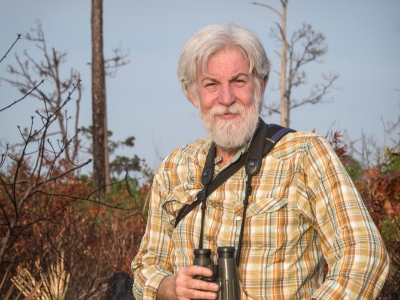
Dr. Reed Bowman, a steadfast volunteer in the AOU/AOS since his student days, exemplified a member of our community who displayed the best forms of service to the society as an ornithologist, a generous volunteer leader, and an inspiring mentor to a new generation of researchers and educators committed to the scientific study of birds and conserving biodiversity. Our community was profoundly saddened by Bowman’s death this past fall, occurring only a few months after he retired from his long-held position as research program director at Archbold Biological Station.
Bowman first joined the AOU/AOS in 1982, and was elected as an Elective Member (2004) and then Fellow (2005) of the AOS. He attended nearly every AOU/AOS annual meeting, typically with a group of students and early professionals he was mentoring at Archbold. Reed’s engagement in the society included the AOS Council, the Conservation Committee, the Senior Professional Awards Committee, and notably the Research Awards Committee (Chair 2004–2011; member 2012–2016). Bowman, along with a diverse set of volunteers that he recruited, transformed the Student Research Awards process during the seven years he chaired the committee, including improving the application process while infusing it with professional training for the students on how best to prepare a professional, competitive proposal. Bowman is well known for his steadfast efforts to advance professionalism in ornithology across all of the ornithological societies in the Americas for the broadest possible audience. Examples of this include his service to the Ornithological Societies of North America (OSNA) board before and during its transition to a modern association management platform to meet the changing needs of the partnering societies and their members. Similarly, in 2016, he was called to serve on the newly formed Safe Meeting Committee for the North American Ornithological Congress (NAOC) VI. Bowman stepped up to help field-test the AOS’s newly developed processes and procedures for investigating complaints of misconduct, and then helped other societies develop similar efforts. He continued to serve on the Safe Meeting Committee for each annual meeting that followed, including the virtual NAOC 2020. In 2019, Bowman served on the society’s Professional Ethics Committee, which was charged with updating and expanding the Code of Conduct to define behavioral norms and expectations for all aspects of professional ornithology, not just conduct at meetings. As with the Safe Meeting Committee, Bowman sought not only to contribute his own knowledge and experience to this effort but also to take the learning from the Professional Ethics Committee back to other societies. His goal was to help the AOS develop core language that would be used by all of the societies such that ornithologists, regardless of where they might be engaged in any of the societies’ programs or meetings, were operating under the same basic expectations of conduct.
Marion Jenkinson Service Award
Viviana Ruiz-Gutierrez, Ph.D., Director, Conservation Science, Center for Avian Population Studies, Cornell University
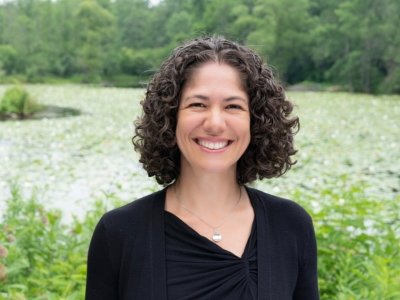
Dr. Viviana Ruiz-Gutierrez earned her bachelor’s degree at the National University of Costa Rica in Tropical Biology, and her doctorate in the Department of Ecology and Evolutionary Biology at Cornell University, with a strong focus on population biology and quantitative ecology. She spent her postdoc years at Colorado State University in the Department of Fish, Wildlife and Conservation Biology. In 2016, Ruiz-Gutierrez returned to the Cornell Lab of Ornithology full time. At the Cornell Lab, the focus of her research is to work at the interface between science and application to deepen our understanding of the social and environmental factors that shape where and when species occur on a given landscape to improve decision-making and conservation. Her research group works on developing and applying novel quantitative modeling techniques to understand how human drivers of land-use change (e.g., agriculture) affect biodiversity using birds as indicators. Her team works collaboratively with practitioners, decision-makers, industry, and local communities to design research that supports the development and implementation of strategies that reconcile biodiversity conservation, sustainable development, and human well-being.
Ruiz-Gutierrez is a past winner of an AOS Travel Award (2009) and was elected an AOS Elective Member in 2016 and a Fellow in 2020. In 2015, she was elected to the AOS Council as an Elective Councilor and served until 2018. She has chaired and served on numerous AOS committees, including the Diversity and Inclusion Committee, the Student Research and Student Presentation Awards Committee, the Diversity and Inclusion Travel Awards subcommittee, the Kessel Fellowship selection committee, and the NAOC VI and VII Workshops Committees. Prior to her service to the AOS, she served on the AOU Early-Career Professionals Committee, Historical Committee, and Student Activities Committee. Gutierrez’s enthusiasm for adventure began early in her life, when at 16 years old, she hiked more than 220 miles in Alaska for a month on a wilderness leadership trip.
Follow Dr. Ruiz-Gutierrez’s research: ORCID-ID
Conservation Awards
The AOS Conservation Awards honor individuals or groups who have made exceptional contributions to conservation through applied research, on-the-ground conservation efforts, education, or partnership building. The Ralph W. Schreiber Conservation Award was initiated in 2005, and the Conservation Practitioner Award in 2023. These two awards allow the AOS to recognize a broader range of critical conservation activities, from science to action.
Ralph W. Schreiber Conservation Award
The AOS Ralph W. Schreiber Conservation Award honors extraordinary conservation-related scientific contributions by an individual or small team. Contributions from throughout the world and over any time period are eligible for this award, including applied research, restoration, and educational actions that conserve birds or preserve significant bird habitats; scientific examination of the principles of avian conservation and application of new insights into species restoration; and scientific evaluation, guidance, creation, and oversight of avian recovery programs or habitat reserve and restoration programs. The award is named for Ralph Schreiber, a prominent figure in American ornithology known for his enthusiasm, energy, and dedication to research and conservation, particularly of seabirds. The AOS is awarding the Ralph W. Schreiber Award in 2024 to Jordan Karubian.
Jordan Karubian, Ph.D., Professor, Department of Ecology and Evolutionary Biology, Tulane University
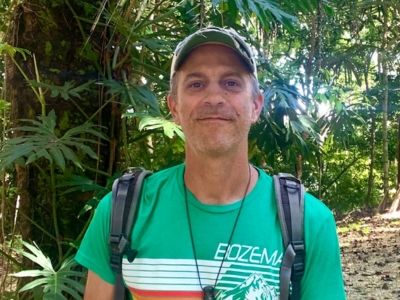
Dr. Jordan Karubian is professor in the Department of Ecology and Evolutionary Biology at Tulane University, a founding member of Foundation for the Conservation of the Tropical Andes (FCAT), and the founding director of the Tulane Interdisciplinary Environmental Research and Action Program (TIERA). He completed his undergraduate degree at University of California San Diego with mentorship from Jack Bradbury; his M.S. and Ph.D. at The University of Chicago with mentorship from Steve Pruett-Jones; and post-doctoral training at University of California Los Angeles with mentorship from Tom Smith and Victoria Sork. Karubian lived in Ecuador full time for five years working with local residents to develop FCAT’s conservation programs, which blend protection and restoration of threatened habitat with capacity building, sustainable livelihoods, and community-engaged research. He has published more than 100 peer-reviewed papers and has been a Fellow of the AOS since 2019. He has received two Fulbright Fellowships, the Ernest A. Lynton Award for the Scholarship of Engagement for Early Career Faculty from New England Resource Center for Higher Education (NERCHE), and the Excellence in Tropical Biology and Conservation Award from the Association for Tropical Biology and Conservation (ATBC). He is a past winner of an AOS Nellie Johnson Baroody Award for Best Student Presentation (2000) and is a two-time AOS student research grantee (1999, 2000). In his free time, Dr. Karubian enjoys surfing and spending time outdoors with his family and friends.
Follow Dr. Karubian’s research: ORCID-ID
Conservation Practitioner Award
Now in its second year since its inception, the AOS Conservation Practitioner Award recognizes individuals or groups of biologists at any stage of their career for outstanding work in government agencies (from municipal, state, provincial, federal, or international levels) or nongovernmental organizations to further the conservation of birds. This award acknowledges the planning, on-the-ground, or day-to-day work of dedicated professionals addressing avian conservation issues at a local or regional scale. Nestor Fariña and Olga Esther Villaba are jointly awarded the 2024 AOS Conservation Practitioner Award.
Nestor Fariña, Park Ranger, Reserva Natural Rincón de Santa María, Ministerio de Turismo de Corrientes, Argentina
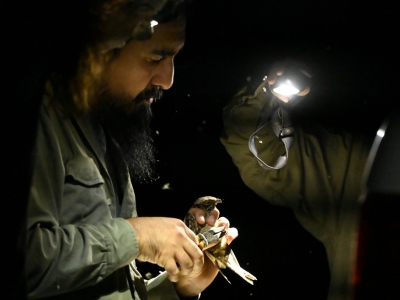
Nestor Fariña graduated as a park ranger technician from the Faculty of Forest Sciences of the National University of Misiones (Argentina), and since then he has dedicated himself to participating in different research and conservation projects, including “Proyecto Selva de Pino Paraná” and “Proyecto Atajacaminos”. Currently and for 15 years he has been a park ranger at Reserva Natural Rincón de Santa María, a provincial reserve in Corrientes, Argentina. He is part of a self-organized team, made up of biologists, park rangers, and naturalists, that studies the ecology and natural history of birds through field observations and banding. They also use radio telemetry, GPS and Motus to monitor Common Nighthawks (Chordeiles minor) and Sickle-winged Nightjars (Eleothreptus anomalus). Fariña is interested in the preservation of scientific specimens of birds and other organisms. His team carries out several conservation programs: they restore forests and grasslands as key habitats for endangered resident and migratory bird species, and they maintain a native plant nursery for educational and forest restoration purposes. Fariña remains close to a diversity of actors who seek to learn more about biodiversity and generate conservation strategies. He shares the idea that generating knowledge about nature provides more possibilities to improve management and conservation of natural resources, and thus guides restoration actions and environmental awareness. Fariña is also passionate about music. Since he was a child he has admired artists such as José Larralde, Atahualpa Yupanqui, and Ricardo Iorio, becoming interested in the lyrics of great works such as: “Cosas que Pasan,” “Otro día para ser,” and “Gil Trabajador.”
Follow Nestor Fariña’s research: ORCID-ID
Olga Esther Villalba, Técnica Universitario Guardaparques, Dirección de Parques y Reservas, Ministerio de turismo de la provincia de Corrientes, Argentina
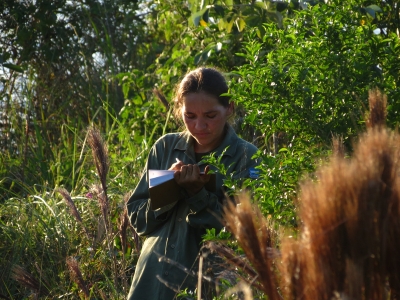
Olga Esther Villalba is a park ranger technician from the Faculty of Forest Sciences at the National University of Misiones in Argentina. She is part of the “Paraná Pine Forest Project” and the “Atajacaminos Project,” and is currently a park ranger at the Rincón de Santa María Natural Reserve in Ituzaingó, Corrientes, which is administered as part of the Parks and Reserves of the Province of Corrientes, Argentina. She focuses on the administration of the protected area and generates lines of work to meet the conservation objectives of the area. Together with park rangers, scientists, and naturalists, Villalba co-leads several local projects that provide knowledge about flora, fauna, and their conservation. Currently, her work focuses on habitat restoration, studies, and monitoring of birds through banding. She develops environmental awareness days with schools, neighbors, and communities near the reserve. Villalba co-leads a native plant nursery project that has the purpose of restoration and environmental education. She likes outdoor activities and sharing culinary moments with her family, which is large and fun, and she loves reviro with beans and fried egg, a typical food from her community.
Follow Olga Esther Villalba’s research: ORCID-ID
Publication Awards
Katma Award
The AOS Katma Award recognizes papers proposing ideas or testing theories that replace current dogma or settled opinion and that could change the course of thinking about the biology of birds. Papers may also include those that propose a largely untested idea or those that develop and advance it. The award may be given to research articles, short communications, or commentaries (including editorials and reviews) of any length published in any scientific venue within the two preceding years. This unique award was established in 2003 through a generous gift from the late Robert W. Storer. The 2024 Katma Award recipient is Emily DuVal for her paper, “Inferred Attractiveness: A generalized mechanism for sexual selection that can maintain variation in traits and preferences over time,” which was published in the journal PLoS Biology.
Emily DuVal, Ph.D., Professor, Department of Biological Sciences, Florida State University
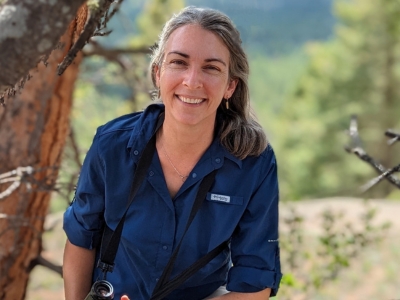
Dr. Emily DuVal is a professor in the Department of Biological Sciences at Florida State University, and studies complex social behavior in wild birds. She earned her Ph.D. at the University of California Berkeley under Eileen Lacey and conducted postdoctoral research at the Max Planck Institute for Ornithology with Bart Kempenaers. Her ornithological interests began as a high school volunteer at the Florida Audubon Society Center for Birds of Prey and through undergraduate research at Rice University on Great-tailed Grackles, supervised by Kris Johnson and Joan Strassmann. Her current research investigates how strong sexual selection leads to evolutionary change, the evolution of cooperative reproduction, and mate choice in Lance-tailed Manakins. She also collaborates on studies of cooperative breeding in Brown-headed Nuthatches. Research on Lance-tailed Manakins is supported by an NSF LTREB (long-term research in environmental biology) award, and previously by an NSF CAREER award, but data collection started in 1999 with early support by an AOU Blake Award (2000) and Marcia Brady Tucker Travel Award (2004). DuVal has been an AOU/AOS member since 2001, an AOS Elective Member since 2009, and a Fellow since 2016. When not conducting fieldwork on manakins, DuVal loves learning about robots with her son, training the family’s ridiculously energetic dog, and dancing salsa. She cites collaborating with the team of colleagues that created this manuscript as a highlight of her career.
Abstract: Sexual selection by mate choice is a powerful force that can lead to evolutionary change, and models of why females choose particular mates are central to understanding its effects. Predominant mate choice theories assume preferences are determined solely by genetic inheritance, an assumption still lacking widespread support. Moreover, preferences often vary among individuals or populations, fail to correspond with conspicuous male traits, or change with context, patterns not predicted by dominant models. Here, we propose a new model that explains this mate choice complexity with one general hypothesized mechanism, “Inferred Attractiveness.” In this model, females acquire mating preferences by observing others’ choices and use context-dependent information to infer which traits are attractive. They learn to prefer the feature of a chosen male that most distinguishes him from other available males. Over generations, this process produces repeated population-level switches in preference and maintains male trait variation. When viability selection is strong, Inferred Attractiveness produces population-wide adaptive preferences superficially resembling “good genes.” However, it results in widespread preference variation or nonadaptive preferences under other predictable circumstances. By casting the female brain as the central selective agent, Inferred Attractiveness captures novel and dynamic aspects of sexual selection and reconciles inconsistencies between mate choice theory and observed behavior.
Citation:
DuVal EH, Fitzpatrick CL, Hobson EA, Servedio MR (2023) Inferred Attractiveness: A generalized mechanism for sexual selection that can maintain variation in traits and preferences over time. PLoS Biol 21(10): e3002269. https://doi.org/10.1371/journal.pbio.3002269
Follow Dr. Duval’s research: ORCID-ID
Florence Merriam Bailey Award
The Florence Merriam Bailey Award—named for the first woman associate of the AOU in 1885, who was also the first woman elected as a Fellow of the AOU in 1929—recognizes an outstanding article published in Ornithology or in Ornithological Applications by an early-career AOS member. The 2024 recipient of the Florence Merriam Bailey Award is Devin de Zwaan for his 2022 paper, “Mass gain and stopover dynamics among migrating songbirds are linked to seasonal, environmental, and life-history effects,” which was published in the AOS journal Ornithology.
Devin de Zwaan, Ph.D., Quantitative Ecologist, Environment and Climate Change Canada
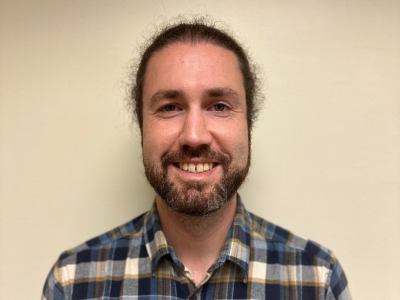
Dr. Devin de Zwaan is an avian ecologist, working at multiple scales from individuals to communities. His training in behavioral ecology has helped inform more recent interests in movement ecology, landscape ecology, and community ecology, all within a conservation framework. He received a B.Sc. Honors from Simon Fraser University with Bernard Roitberg, Ph.D., and David Green, Ph.D., where he studied the foraging ecology of a tropical understory insectivore in Panama. In 2020, de Zwaan completed a Ph.D. at the University of British Columbia with former AOS President Kathy Martin, Ph.D. His dissertation research focused on alpine ecology and conservation, specifically full annual cycle effects of weather on offspring development and reproductive success. Since his Ph.D., de Zwaan shifted focus to assessing abundance and occupancy trends using citizen science datasets. He recently completed postdoctoral research at Mount Allison University and Acadia University with Diana Hamilton, Ph.D., and Phil Taylor, Ph.D. These projects involved shorebird movement ecology and tracking nocturnal migrating birds near wind farms using marine radar and thermal imaging. de Zwaan has recently started a position with Environment and Climate Change Canada, where he will be working with seabird data to inform response action plans for environmental disasters. He was previously awarded the Taverner Award from the Society of Canadian Ornithologists–Société des ornithologistes du Canada and an AOS Student Research Grant and AOS Travel Grant. He contributed two chapters to a book on mountain bird ecology, bringing together mountain ecology experts from every continent other than Antarctica.
Abstract: During migration, birds must stopover at refueling sites to replenish energy stores, with the rate of refueling linked to stopover length, migration speed, and the timing of critical life stages, such as breeding. Under optimal migration theory, birds are expected to maximize fuel intake and minimize stopover length (the time minimization hypothesis). Within a multi-species framework, we demonstrate that time minimization behavior is context-dependent, as refueling rate, stopover length, and departure decisions vary between seasons, among species with different ecological traits (e.g., diet and migration distance), and in response to density-dependent factors and prevailing environmental conditions. Using long-term banding data (10 years) from southwestern British Columbia, Canada, we investigated the ecological processes shaping stopover dynamics among 5 warbler (Parulidae) and 5 sparrow species (Passerellidae). Specifically, we assessed variation in fuel deposition rates (FDRs) as well as the associations between mass gain, stopover length, and departure probability. FDR was greater in insectivorous warblers during spring migration and in species migrating long distances. FDR responded positively to temperature and habitat productivity, but negatively to precipitation events, particularly for insectivorous, long-distance migrants during spring migration. Similarly, density-dependent refueling rate was only observed in insectivores and long-distance migrants during spring migration, where higher densities of foliage-gleaning insectivores were associated with a lower FDR. Stopover duration was more closely associated with body condition upon arrival and subsequent mass gain than direct environmental effects, especially during northward spring migration, providing support for time minimization and a mass threshold influencing departure decisions. These results highlight that refueling rates and stopover quality vary among species depending on their life-history strategies, with particular implications for long-distance, migratory insectivores, which may be most susceptible to climate shifts.
Follow Dr. de Zwaan’s research: ORCID-ID
Citation:
de Zwaan DR, Huang A, McCallum Q, Owen K, Lamont M, Easton W. Mass gain and stopover dynamics among migrating songbirds are linked to seasonal, environmental, and life-history effects, Ornithology, Volume 139, Issue 4, 6 October 2022, ukac027, https://doi.org/10.1093/ornithology/ukac027
Brina Kessel Award
The AOS Brina Kessel Award recognizes the most outstanding article by a single or multiple authors published in Ornithology over the preceding two-year period. The award is made in even-numbered years to complement the Painton Award, which is given in odd-numbered years for the best paper published in Ornithological Applications during the preceding two-year period. The 2024 recipient of the Brina Kessel Award is Andrew J. Laughlin for his paper, “Winter range shifts and their associations with species traits are heterogeneous in eastern North American birds.”
Andrew J. Laughlin, Ph.D., Associate Professor of Environmental Science, University of North Carolina Asheville
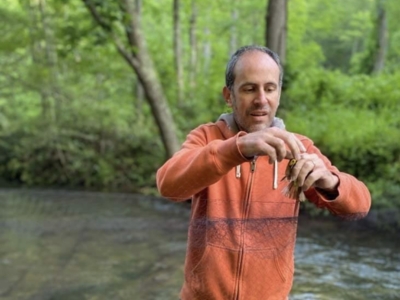
Dr. Andrew J. Laughlin is an associate professor of environmental science at the University of North Carolina Asheville, where he has taught since 2015. He teaches classes in ecology, ornithology, wildlife management, urban ecology, and global change. His research interests focus on animal responses to environmental change, with a focus on birds. His avian research takes place in a variety of settings, from urban centers to relict southern Appalachian spruce-fir forests. Currently, he and his undergraduate research students are resurveying bird communities in portions of the Great Smoky Mountains National Park to understand how bird communities are responding to climate change and the recent Eastern hemlock die-off. He received his M.S. in Biological Sciences from East Tennessee State University in 2010, under Fred Alsop, Ph.D.; and his Ph.D. in Ecology and Evolutionary Biology from Tulane University in 2015, under Caz Taylor, Ph.D. Lars Pomara, the paper’s coauthor, is a research ecologist at the USDA Forest Service’s Southern Research Station, with interests in landscape ecology, ornithology, and conservation. He contributed expertise in ecological modeling and climate change ecology to the analysis and writing of the paper.
Abstract: Many species’ distributions are shifting in response to climate change. Many distributional shifts are predictably poleward or higher in elevation, but heterogeneity in the rate and direction of shifts both within and between species appears to be common. We found high heterogeneity in the trajectory of winter range shifts for 65 species of birds across eastern North America and in the different traits and trait interactions associated with these shifts across the spatial scales we examined. We used data from the Christmas Bird Count to quantify the trajectory of winter latitudinal center of abundance range shifts over four decades (1980–2019) for 65 species of songbirds and woodpeckers in North America, both across eastern North America (ENA) as a whole and for the Atlantic (ATL) and Mississippi (MISS) flyways separately. We then used linear models and AICc model selection to test whether species traits could explain variation in range shifts or flyway discrepancies. Across ENA, most species showed northward latitudinal range shifts, but some showed no latitudinal shift while others shifted southwards. Amongst ATL and MISS, we documented both within- and between-species differences in the rate and direction of latitudinal shifts, complicating the results from across ENA. No single trait emerged as a dominant driver of range shift differences at the ENA and flyway scales. Migration strategy interacted with insectivory to explain variation at the largest spatial scale (ENA), whereas frugivory and mean winter latitude explained much of the variation in ATL and MISS, respectively. Exploring heterogeneity in range shifts within and between species, and in the associations between range shifts and life history traits, will help us better understand the mechanisms that mediate differing responses to environmental change and predict which species will be better able to adapt to those changes.
Follow Dr. Laughlin’s research: ORCID-ID
Citation:
Laughlin AJ, Pomara LY. Winter range shifts and their associations with species traits are heterogeneous in eastern North American birds, Ornithology, Volume 140, Issue 4, 5 October 2023, ukad027, https://doi.org/10.1093/ornithology/ukad027
About the American Ornithological Society
The American Ornithological Society (AOS) is an international society dedicated to connecting ornithologists, science, and bird conservation by supporting science that advances the understanding and conservation of birds; promoting broad access to ornithological science; supporting ornithologists throughout their career paths; and fostering a welcoming, diverse, supportive, and dynamic ornithological community. The AOS publishes two top-ranked international scientific journals, Ornithology and Ornithological Applications, and hosts an annual conference that attracts ornithologists from across the globe. Its robust grants program supports student and early-career professional research initiatives. The society’s check-lists serve as the accepted authorities for scientific nomenclature and English common names of birds in the Americas. The AOS is also a partner with The Cornell Lab of Ornithology in the online Birds of the World, a rich database of species accounts of the world’s birds. The AOS is a 501(c)(3) nonprofit organization serving about 3,000 members globally. For more information, see www.americanornithology.org.